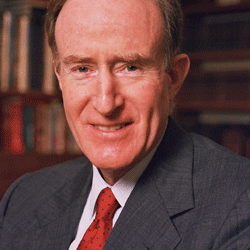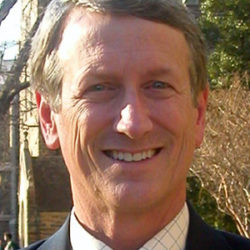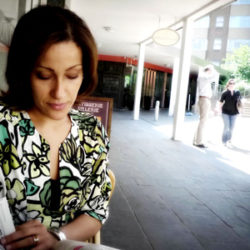SASE received a record number of submissions for mini-conference themes this year. We are pleased to announce those selected for our 2012 annual meeting!
Submissions to the SASE conference must be made through one of the mini-conferences below (or through a research network). Paper and session abstracts as well as full papers for grant, prize, and stipend applications must be submitted to all networks by January 15, 2012. Candidates will be notified by April 2, 2012. Please note that mini-conferences require an extended (~1,000 word) abstract, and ask that you submit a full paper by June 1st. For further information, please contact the organizer of the mini-conference to which you are submitting.
Mini-conferences are based around a selected number of focused themes, and have open submissions for panels and papers, based on an extended abstract (approx. 1000 words). Each mini-conference will consist of 2 to 6 panels. Each panel will have a discussant, meaning that selected participants must submit a completed paper by June 1st. If a paper proposal cannot be accommodated within a mini-conference, organizers will forward it to the program committee, who will pass it on to one of the networks as a regular submission.
Socio Economic Conflict and the Dynamics of Institutional Change
detailed info Bruno Amable
Bruno Amable

Bruno Amable is professor of political economy at the University of Geneva, on leave from the University of Paris I Panthéon-Sorbonne. He has been a member of SASE since last century, and an editor of Socio Economic Review since 2010. His current research focuses on comparative capitalism and the political economy of institutional change. He has published several books, in particular The Diversity of Modern Capitalism (OUP 2003), Libéralisation, innovation et croissance, faut-il vraiment les associer ? (with Ivan Ledezma, Editions rue d’Ulm 2015), and more recently L’illusion du bloc bourgeois (with Stefano Palombarini, Raisons d’Agir 2017) / von Mitterrand zu Macron(Suhrkamp 2018) and Structural Crisis and Institutional Change in Modern Capitalism, French Capitalism in Transition (OUP 2017). His research has appeared in journals such as Industrial Relations, Journal of Institutional Economics, Socio Economic Review, Oxford Review of Economic Policy, and Industrial and Corporate Change among others.
 Elvire Guillaud
Elvire Guillaud

Elvire Guillaud is assistant professor of Economics at the University of Paris 1 Pantheon-Sorbonne, and a member of the Centre d’Economie de la Sorbonne (CES). Her research focuses on the political economy of redistribution, institutional change, and the evolution of political demand in a comparative perspective.
Globalization and the Great Recession have exacerbated socio-economic conflicts in industrialized economies, putting macroeconomic policies under pressure and modifying the political expectations of and the balance of power between social groups. The social compromises supporting existing institutions have been undermined, thus making institutional change and structural reforms inevitable. In this framework economic institutions are understood as a way of settling fundamental conflicts of interest between social groups. A change in institutions such as the labor market, product market competition, innovation and financial systems and social protection systems, can thus be traced back to a change in social demands and balance of power between social groups, and the reaction of political actors. The research called in this mini-conference will seek to highlight this kind of interplay between the social, economic and political spheres, where economic dynamics affect the social position of agents, their expectations, the structuring in social groups, the political demands expressed by these groups and the strategies of political actors. It will welcome paper proposals focusing on industrialized countries, in a national or a comparative perspective. We particularly encourage submissions that address one or more of the following questions: What are the consequences of the current transformations taking place in modern capitalism in terms of de-structuring and re-structuring of social, economic or political conflict? What are the new socio-political compromises and what does it imply for the pattern of institutional change? What is the impact of the Great Recession on the evolution of these compromises? Does it fundamentally challenge otherwise stable equilibriums or does it act as an accelerator of previous trends? How did the emergence of new actors (through globalization or the European integration) modify national social and political equilibriums? How important are the strategies of political actors for the dynamics of institutional change?
Is There A Changing Variety of Capitalism In Latin America? Debates on new Developmentalism and the Institutional Turn for Capitalism In Latin America
detailed info Moises Balestro
Moises Balestro

Moisés Balestro holds a PhD in Social Sciences from the University of Brasília. He is an Associate Professor at the University of Brasilia in the Graduate Program of Comparative Studies on the Americas at the Department of Latin American Studies. He was a visiting scholar at the Institute of Political Science at Goethe Universität (2014-2015). As a researcher in the area of economic sociology and political economy, he leads a Comparative Studies of Economic Sociology research group at the Brazilian National Research Council. His areas of interest are diversities of capitalism with special emphasis on the Global South, innovation and development, and social construction of markets. He has articles in journals and book chapters on state and development, innovation, political economy of agribusiness and rural development. He is also a researcher at the National Institute of Science and Technology in Public Policy, Strategy and Development (INCT/PPED), and is linked to the line State, Varieties of Capitalism and Development Policies in Emerging Countries, especially the BRICS. Recently, he carried out a project funded by the Brazilian CAPES together with the German DAAD on the lessons from Germany to the institutional determinants of the Brazilian technological learning and another on the role of ideas in the coordination of industrial policies in Brazil.
 Marlon Brisola
Marlon Brisola

Marlon V. Brisola is is a doctoral candidate at the Research Center and Graduation Program on the Americas (CEPPAC) at the University of Brasilia and an assistant professor at the University of Brasília. His research interests are in the area of governance, rural development, agribusiness, market sociology, and diversity of capitalism. His recent projects have focused on economic groups and varieties of capitalism in Latin America.
 Luiz Carlos Brito Lourenço
Luiz Carlos Brito Lourenço

Luiz Carlos de Brito Lourenço is a doctoral candidate at the Research Center and Graduation Program on the Americas (CEPPAC) at the University of Brasilia. He is currently studying the architecture of the “Strategic State” by comparing public policy on biofuel and renewable energies in Brazil and the USA. He is currently a visiting scholar at the Department of Sociology of the University of California, Davis with the support of Dr. Fred L. Block, is a member of the Research Group on Comparative Studies in Economic Sociology at the University of Brasilia and a lecturer in the Agribusiness MBA program of the University of São Paulo. His broad experience working in public administration in the fields of foreign trade and banking are at the origin of his interest in strategies of innovation for agriculture and energy development.
Globalization and market fundamentalism in Latin America have not led to increased convergence towards a liberal market economy, as once expected. As neo-liberal policies lose much of their strength, the idea of development strategies that give a more prominent role to state leadership have gained support. In progressive governments in major Latin American countries such as Brazil and Argentina, a more active role for state has apparently opened up new possibilities for economic regulation and industrial policies that contribute to catch-up strategies. There has been some evidence of this with industrial and social policies and broader union participation in government-sponsored councils. In this sense, political conditions that favor a new form of developmentalism can be found. For this new developmentalism, a national growth strategy is the key institution for development. The developmental state needs coordination mechanisms for the huge range of actors contributing to the development process, as well as the capacity to balance social interests by combining economic efficiency with social protection. However, financial rentism encouraged by high interest rates on public debts and deindustrialization stemming from the loss of competitiveness in technological development, combined with a boom in commodity prices, have seemed to reinforce institutions of a dependent and low-skill economy with an high concentration of ownership and deep inequalities. In contrast to the liberal market economy, Ben R. Schneider and other authors have dubbed this type of economy a hierarchical market economy. Traits of this type of economy include diversified business groups and multinational corporations, low-skill labor, atomistic labor relations, low union density, and crony relations with the State.
We invite theoretical and empirical papers on the political, economic and institutional features of capitalism in Latin America, especially those that shed light on the features and processes that characterize its variety. Papers covering topics such as industrial and technological policies, labor relations and employment policies, financialization, business and government relations, social policies, and development strategies in general are all welcome. Scholars adopting different perspectives on the extension of the VoC model and its combination with new developmentalism are invited to share their views on these approaches, whose influence is burgeoning in the Latin American context.
Regulating Labor and Environment: Beyond the Public-Private Divide
detailed info Nicole Helmerich
Nicole Helmerich

Nicole Helmerich is a post-doctoral researcher at the Hertie School of Governance in Berlin, Germany. Prior to that, Nicole was researcher at the Free University Berlin, and a visiting researcher at University of Washington, Seattle. Nicole holds a PhD in International Relations from the Berlin Graduate School for Transnational Studies (BTS), Free University Berlin. Her publications are concerned with the role of business in transnational governance, transnational private regulation, corporate responsibility and transnational workers’ rights. She heads a research project on workers’ voice in transnational European firms and good corporate governance and a data set project on the same topic. Her most recent book ‘Sustainability Politics and Limited Statehood’ with A. Esguerra and T. Risse is on public-private partnerships, multi-stakeholder initiatives, and market-based instruments in sustainability governance. The authors critically examine the performance of new modes of governance in areas of limited statehood, drawing on a range of in-depth case studies on issues of climate change, biodiversity, and health.
 Olga Malets
Olga Malets

Olga Malets is a Lecturer at the Chair of Forest and Environmental Policy of the Technische Universität in Munich. She completed her doctoral studies at the Max Planck Institute for the Study of Societies in Cologne. Her research focuses on international forest and environmental policy and the local implementation of environmental and social certification standards.
 Chikako Oka
Chikako Oka

Chikako Oka is a Lecturer at the School of Management, Royal Holloway University of London. She received her PhD from the London School of Economics. Her research interest lies at the intersection of management and labor regulation, with a particular interest in how buyers and suppliers interact to influence working conditions in global supply chains.
The goal of this mini-conference is to examine the dynamics and impact of labor and environmental regulation in the age of globalization. Whereas globalization in some ways challenges the enforcement of national labor and environmental standards, it has also opened up or inspired new channels for policy-makers, regulators, activists, consumers, workers, and managers to influence the behavior of firms around the world. These include both private regulation (e.g., certification systems, codes of conduct, etc.) and new or reinvigorated forms of state regulation. This mini-conference will explore the multiple linkages between global shifts in environmental and labor regulation and their local effects. We invite papers that bring new empirical evidence and/or theoretical clarity to questions such as: what are the implications of global shifts and transnational standards for the implementation of domestic regulatory projects? How is the implementation of transnational labor and environmental standards shaped by pre-existing (or reforming) domestic configurations of rights and regulation? Under what conditions are transnational standards effectively enforced locally, adapted by local actors (with either positive or negative implications), or circumvented? In what ways are transformations in domestic public regulation spilling over to affect global prescriptions about regulation, standard-setting, or corporate social responsibility? How do particular supply chain structures, production practices, or cultures of production and consumption promote or undermine compliance with public and private regulation? What are the unintended consequences of different regulatory forms and initiatives? More broadly, what should scholars and practitioners of public and private regulation be learning from each other? What can analyses of labor and the environment contribute to one another? We seek to garner enough theoretical, methodological, and regional diversity in the papers to foster exciting new conversations and insights.
Workers, Inequality and the State in the Era of Financialization
detailed info Joshua Bloom
Joshua Bloom

Joshua Bloom is Director of Programs and Development at the Institute for Research on Labor and Employment, and a doctoral candidate in the Sociology Department at the University of California, Los Angeles. He studies social movements, labor, methodology, and race. He is co-editor with Ruth Milkman and Victor Narro of Working for Justice: the LA Model of Organizing and Advocacy (Cornell University Press, 2010). His work-in-progress, Pathways of Insurgency: Black Liberation Struggle and the Second Reconstruction in the United States, 1945-1975, compares three waves of postwar Black Liberation Struggle and argues that insurgent mobilization proliferates when movement actors develop practices which, given historically particular political cleavages, destabilize target institutions while drawing broad allied support. Before becoming an academic, Joshua worked for eight years as an organizer.
 Chris Tilly
Chris Tilly

Chris Tilly is an economist specializing in labor, income distribution, and local economic development, with research focusing on the United States and Mexico. He is Professor of Urban Planning and Sociology and Director of the Institute for Research on Labor and Employment at the University of California Los Angeles. Tilly’s books include Half a Job: Bad and Good Part-Time Jobs in a Changing Labor Market, Glass Ceilings and Bottomless Pits: Women’s Work, Women’s Poverty, Work Under Capitalism, Stories Employers Tell: Race, Skill, and Hiring in America, and The Gloves-Off Economy: Labor Standards at the Bottom of America’s Labor Market.
By now, the “financialization” of the economy is widely acknowledged. Over the past several decades, firms have earned an increasing share of their income through portfolio activities and exercised greater control over other sectors of economic activity; at the same time, the financial sector has grown relative to the industrial economy as financial markets have expanded their offerings and subsumed more and more participants. Increasingly, not only market actors but governments and even households are looking to Wall Street and financial markets across the globe as a kind of economic Polaris. These developments have led to numerous changes within and among firms, affecting degrees of vertical and horizontal integration while altering the balance of power among shareholders, managers, workers, states, and other actors. While scholarship has explicated the variety of forms markets take under financial capitalism, it is only just beginning to explore how these new forms impact firms’ relationships with workers, communities, and the state. This mini-conference theme will explore recent scholarship on the effects of financialization on workers, labor and community organizations, and the state. What are the challenges and opportunities facing workers and labor movements in the era of financialization? How have the ascendance of finance and the concomitant reorganization of markets altered the nature of firms’ accountability to workers, communities, and the state? What are the effects of financialization on labor markets and on worker inequality in different sectors? How has the globalization of financial flows shaped these processes, and to what extent are national institutions capable of regulating these effects?
Remaking Globalization: Comparative Capitalism and International Institutions
detailed info Richard Deeg
Richard Deeg

Professor Richard Deeg is the head of the Department of Political Science at Temple University. He received his PhD from the Massachusetts Institute of Technology. He has been a Postdoctoral Fellow and Visiting Scholar at the Max Planck Institute for the Study of Societies in Cologne, Germany, as well as the Social Science Research Centre, Berlin. He has received numerous awards and fellowships, including Fulbright and Jacob K. Javits Fellowships. His publications include Finance Capitalism Unveiled: Banks and the German Political Economy (University of Michigan, 1999) and numerous articles on German and European political economy in various journals. His current research focuses on causes and mechanisms of institutional change in financial systems. He was local organizer for the 2010 SASE Annual Meeting and has served on its executive council since 2010.
 Orfeo Fioretos
Orfeo Fioretos

Orfeo Fioretos is associate professor of political science at Temple University, Philadelphia. He received his Ph.D. from Columbia University and publishes work on the politics of markets and international institutions. He is the author of Creative Reconstructions: Multilateralism and European Varieties of Capitalism After 1950 (Cornell University Press, 2011), and articles in International Organization, Review of International Political Economy, Comparative Political Studies, Journal of European Public Policy, as well as chapters in edited volumes, including Making History (2007) and Varieties of Capitalism (2001). He was a member of the local organization team for SASE 2010 in Philadelphia.
The modern national economy is deeply enmeshed in a large number of international and transnational institutions. Developments before and after the Great Recession underscore the centrality of such institutions in shaping modern capitalism around the world. This mini-conference will feature papers that integrate the disciplines of comparative and international political economy to arrive at nuanced answers to three questions: (1) how do alternative models of national capitalism shape the international politics of financial regulation; (2) what consequences do new forms of international cooperation have for domestic adjustments and institutions after the crisis; and (3) how have distributional conflicts associated with the process of financialization and regulation shaped domestic and global distributions of power since the crisis. The mini-conference aims to include developments in a large number of areas of financial governance (including, but not limited to, commercial and central banking; securities, hedge fund, and rating agency regulation, corporate governance); comparisons of national developments in advanced industrial economies (such as the US, UK, Germany, or France), emerging large economies (such as China, Brazil, or India), as well as smaller economies (such as Hungary, Poland, or the Czech Republic); and explore developments in several intergovernmental and transgovernmental forums (such as the G20; EU; Basel, or IOSCO).
Migration and Development
detailed info Natasha Iskander
Natasha Iskander

Natasha Iskander is Assistant Professor of Public Policy at New York University’s Wagner School of Public Service. She conducts research on labor migration and its relationship to economic development, with an emphasis on processes of institutional innovation and organizational learning. Her recent award-wining book, entitled Creative State: Forty Years of Migration and Development Policy in Morocco and Mexico (Cornell University Press: 2010), examines how the governments of Mexico and Morocco elaborated policies to build a link between labor emigration and local economic development. Her current project investigates how international migration acts as a vehicle for human capital development, knowledge generation, and industry renewal. Empirically, she has focused on Mexican migrants in the US and Mexican construction industries. Additionally, Dr. Iskander examines the impact on rapid rural-to-urban migration on the provision of urban water and sanitation, and its relationship to climate change. She holds PhD in Management and a Masters in City Planning from the Massachusetts Institute of Technology (MIT), and a BA in Cultural Studies from Stanford University.
Devesh Kapur is Director, Center for Advanced Study of India (CASI) and Madan Lal Sobti Assoc. Professor for the Study of Contemporary India, University of Pennsylvania. Prior to his current position he was a faculty member at Harvard and University of Texas, Austin. He is a Non-Resident Fellow at the Center for Global Development in Washington D.C.. He is the author/coauthor of The World Bank: Its First Half Century; Give us your Best and Brightest: The Global Hunt for Talent and Its Impact on the Developing World; Public Institutions in India: Performance and Design. His most recent book is Diaspora, Democracy and Development: The Impact of International Migration from India on India (Princeton University Press). His current research focuses on India’s governance and human capital challenges (especially higher education and skills development), the effects of economic liberalization on historically marginalized groups and its changing geopolitical engagements. He has a B. Tech and M.S. in chemical engineering and a Ph.D. in Public Policy from Princeton University.
Conversations about globalization and development that have focused on trade, foreign direct investment, and multinational production have begun to appraise international migration – the movement of people across borders – as a crucial determinant of local and national development. Migrant remittances worldwide have grown to $450 billion in 2010 – a sum more than triple the amount of international development aid. For many countries, migrant remittances are an indispensable source of capital, and provide a counter-cyclical buffer against global economic shocks and the poverty it can produce. Over and above these infusions of hard currency, international migration has sparked knowledge and learning transfers across national boundaries, has woven social networks that serve as infrastructure for international production and exchange, and has laid the foundation for powerful political lobbies that have influenced the policies of both the countries that migrants have left and those they have adopted as their new home. Governments of migrant-sending and migrant-receiving countries have experimented with numerous policies to take advantage of the resources that migration provides.
In a new multi-polar world, understanding the increasingly complex and nuanced role of international migration in shaping economic trajectories has taken on new urgency. Despite the importance of the flows of money, knowledge, and networks that international migration supports, research on the contemporary relationship between migration and development is still emergent. We would like to invite submissions to present new research and analysis on the nexus between migration and socio-economic change. We invite papers that examine how migration informs economic development in either migrant-sending or migrant-receiving country contexts, or both. We welcome papers from multiple disciplinary perspectives. Explorations of migration and development in relation to the following topic areas are suggested and invited: global/local financial instability and recessions; remittances (both micro and macro perspectives welcome); human capital development; knowledge transfer and industrial transformation; political participation and change; local and national economic development policy; immigration policy; labor mobilization and labor standards.
Change in Higher Education and Global Shifts in Contemporary Capitalism
detailed info Christine Musselin
Christine Musselin

Christine Musselin is the director of the Centre de Sociologie des Organisations, a research unit of Sciences Po and the CNRS. She leads comparative studies on university governance, public policy in higher education and research, state-university relationships, and academic labor markets. Two of her books, La longue marche des universités françaises (published by the P.U.F in 2001) and Le marché des universitaires, France Allemagne, Etats-Unis, were published in English translation by Routledge in 2004 and 2009, respectively. She was a DAAD fellow in 1984-1985 and a Fulbright and Harvard fellow in 1998-1999. She is co-editor of Higher Education and a member of the editorial board of Sociologie du Travail.
Throughout the world, most social scientists work in universities, research centers, or other institutions of higher education. It is therefore surprising that the political economy and neo-institutionalist literatures have paid so little attention to the transformation of Higher Education (HE) systems. While Vocational Education and Training (VET) systems have been a privileged locus for analysis in both historical institutionalism and the varieties of capitalism theoretical frameworks (Streeck 1992, Hall and Soskice 2001, Thelen 2004, Culpepper 2003), HE systems have not. Their study has largely been left to economists of education and to organizational scholars. Furthermore, the globalization of HE systems over the past thirty years has taken the form of a global dissemination of Western-type tertiary institutions; at the same time, European universities have undergone enormous transformation. Overall, changes in this field are connected to the increasingly central role of HE systems in advanced economies, and are essentially a way to respond to the pressing need to open these systems to the external environment. This field is therefore especially promising for theories of institutional change, path dependence, or modes of incremental transformation (Pierson 2000, Crouch 2005, Streeck and Thelen 2005).
A first general question for this mini-conference is, therefore, the following: how can neo-institutionalist and political economy theories shed light on the study of HE systems, both in terms of recent dramatic changes as well as persisting differences?
A second broad question concerns the driving forces and the constellations of actors responsible for the deep transformation of HE systems and institutions in the past decades. Is a general movement toward a global HE market underway? Or, to the contrary, do differences persist among national systems and among universities within national system, which would suggest that institutional contexts and power relations matter?
Finally, when set against changes affecting European HE systems, the modernization process in Asian universities appears no less rapid and dramatic. The drive to modernization has largely been inspired by the success of American and European models for universities and characterized by a willingness to imitate its main features. More generally, HE has not only been deeply transformed; it has undergone a process of globalization, or a global shift. But what structural factors and power relations can we detect underlying this process?
The Impact of Global Shifts on Job Quality
detailed info Chris Warhurst
Chris Warhurst

Chris Warhurst is co-organising the mini-conference The impact of global shifts on job quality. He is Professor of Work and Organisational Studies at the University of Sydney. His most recent co-edited work, the Oxford Handbook of Skills and Training, will be published in 2013. New co-authored books include Aesthetic Labour (Sage, 2012) and A Very Short, Fairly Interesting and Reasonably Cheap Book about Studying Work and Employment (Sage, 2013). His current research interest focuses on job quality. He is also co-editor, with Patricia Findlay, of Are Bad Jobs Inevitable? (Palgrave, 2012), with whom he co-organized the ESRC-funded seminar series ‘Making bad Jobs Better’ from which a public interest report will be launched. He has provided advisory work on employment to government in the UK, Scotland, Australia and Hungary as well as the OECD.
 Paul Osterman
Paul Osterman

Paul Osterman is the NTU Professor of Human Resources and Management at the M.I.T. Sloan School of Management and the Department of Urban Planning, M.I.T. Osterman’s most recent books include Good Jobs America: Making Work Better For Everyone (Russell Sage, 2011); The Truth About Middle Managers: Who They Are, How They Work, Why They Matter (Harvard Business School Press, 2008). Osterman has been a senior administrator of job training programs for the Commonwealth of Massachusetts and consulted widely to firms, government agencies, foundations, community groups, and public interest organizations. He received his Ph.D. in Economics from M.I.T.
 Patricia Findlay
Patricia Findlay

Patricia Findlay is Professor of Work and Employment Relations and Director of the Scottish Centre for Employment Research at the Department of Human Resource Management at the University of Strathclyde in Glasgow. She is currently working on a number of research projects relating to public sector workers: with Commander, Lindsay and others she is researching technological change and job quality in NHS pharmacy services; with Findlay and Stewart she is studying occupational pay for public sector professionals; and with Findlay and Commander she is researching female academic careers. She is co-editor with Chris Warhurst, Chris Tilly and Francoise Carre of Are Bad Jobs Inevitable? (Palgrave, 2012). With Commander (and Warhurst, Keep and Lloyd), she co-organized an ESRC-funded seminar series on ‘Making Bad Jobs Better’ (www.makingbadjobsbetter.org.uk). She works closely with trade unions and other organizations in developing effective approaches to skills and learning. She is a member of the editorial board of the Industrial Relations Journal, a former editorial board member of the journal Work, Employment and Society, a member of the ESRC Peer Review College and a lay member of the Employment Tribunal Service.
Global shifts in production affect job quality and our understanding of it in advanced and emerging economies. Differences in job quality may narrow, widen or take different forms. The old international division of labor was based on the assumption that, worldwide, good jobs and bad jobs were disaggregated geographically, with the former in North America and Western Europe and the latter in Asia. The emergence of BRIC economies might suggest a convergence in job quality. We know, however, that job quality and its forms have varied from one advanced economies to another, shaped by differing regulatory regimes.
If the global economy breaks apart into new patterns, our understanding of job quality may do the same, with the resulting idea that there are not only different levels, but also many different forms, of job quality. While the understanding and measurement of job quality has in recent years benefited from multi-disciplinary analyses, too few spatial analyses exist. This mini-conference will examine and debate job quality in an era of new global shifts. Contributions will examine the empirical changes and conceptual challenges to job quality wrought by these shifts. Papers will be sought from sociology, economics, industrial relations and related disciplines, as well as from policymakers and practitioners. While authors are free to choose the foci of their papers, the mini-conference will centre on four broad questions.
1) Is there global convergence, divergence or polarity in job quality?
2) Does our understanding of job quality need to change?
3) What factors are driving any empirical and conceptual changes?
4) Is global regulation of job quality feasible or desirable?
The mini-conference will take place in five panels. The opening panel will set the tone, featuring the mini-conference organizers as well as invited policymaker and practitioner speakers, for example from the OECD and the union movement. The remaining four panels will be organized thematically around the four questions.

















